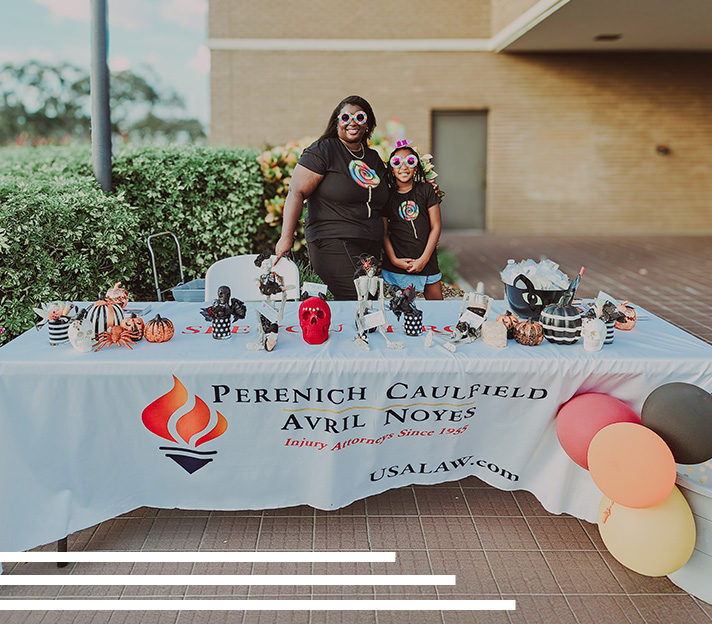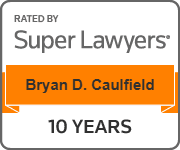Is It a Mistake To Admit Fault After a Car Accident in St. Pete, FL?
It might seem like a big mistake to admit fault after a car accident in St. Petersburg, Florida, even if you believe it’s true. The reality is that, at least when it comes to a bodily injury claim, it might matter a lot, or it might not. It all depends on the circumstances surrounding your accident. It is almost always a mistake when it comes to property damage liability, however.
Insurance Companies and Business Reality
Insurance companies make money by accepting monthly premiums, not paying personal injury claims.
Consequently, you can expect resistance when you file a claim against them, whether it’s your own insurance company or the at-fault party’s liability insurance company. The larger your claim, the more resistance you can expect.
How Florida’s No-Fault Car Insurance System Works
Florida is one of only 12 states and the District of Columbia that operates a no-fault car insurance system for bodily injury. As long as your case remains within Florida’s no-fault boundaries, it might not matter much if you’ve admitted fault. Fault is irrelevant except in unusual circumstances, such as serious injury crashes, road rage incidents, or DUI accidents.
Florida will pay 80% of your medical expenses and 60% of your lost earnings, along with certain other expenses, up to a cumulative total of $10,000. You can buy more than this legal minimum coverage if you choose to.
However, you cannot win non-economic damages, and you cannot sue the at-fault driver unless an exception to the no-fault rules applies. Serious injury accidents, road rage, and DUI accidents are three examples might also open the door for a lawsuit against the at-fault driver.
The ‘Serious Injury’ Loophole in Florida’s No-Fault System
The most important loophole in Florida’s no-fault system is the ‘serious injury’ exception. If another party’s injuries qualify as ‘serious,’ they can step outside the no-fault system and sue you for full damages (including for pain and suffering as well as other non-economic damages. This could make a huge difference if you have already admitted fault.
An injury is ‘serious’ under Florida car accident law if it results in:
- Significant and permanent loss of an important bodily function;
- Permanent injury;
- Significant and permanent scarring or disfigurement; or
- Death.
Any one of the foregoing circumstances can justify another driver, a passenger, or even a pedestrian filing a lawsuit against you.
Florida’s Bodily Injury Liability Insurance Problem
Florida is one of only a handful of states that does not require its drivers to carry bodily injury liability insurance. Imagine that you decided to save money by refraining from purchasing optional bodily injury liability insurance. Now imagine that later you have a car accident that seriously injures somebody else, and you admit fault.
If you lose a lawsuit on this basis, where are you going to get the money to pay the other driver’s medical bills and lost earnings? Your personal assets, including your car, your home, and your savings, could all be at risk, even if the accident wasn’t your fault. By all means, purchase plenty of bodily injury liability insurance even though Florida law does not require it.
Property Damage: A Different Story
In many car accidents, property damage to the vehicles is the only loss involved. Florida’s no-fault system does not apply to property damage, regardless of the severity of the damage.
If you admit fault, you could bear liability for damage to the other driver’s car. The damage could easily exceed the $10,000 minimum property damage liability (PDL) insurance that all Florida drivers must carry.
How You Can Get Cheated Even if You Really Were at Least Partially at Fault
Admitting fault can hurt you in several ways, whether you were 100%, partly, or 0% at fault.
Comparative Negligence
Your admission of fault could result in you bearing a disproportionate percentage of liability for the accident. Consider the following scenarios:
- The other driver was speeding and might have otherwise been able to stop in time to avoid the accident.
- The other vehicle had faulty brakes that contributed more to the accident than your driving error did.
- The other driver was texting while driving, which would have shifted most of the fault to them.
- The other driver’s improper lane change was the critical factor that caused the accident.
- Traffic signals were malfunctioning at the time of the accident, which might have been a significant contributing factor.
- The other driver consumed alcohol before driving, resulting in slowed reaction time.
These scenarios illustrate the folly of attempting to determine fault for an accident in the heat of the moment.
Your Belief That the Accident Was Your Fault Might Be Mistaken
Suppose you suffered a head injury in the accident. The resulting “brain fog” caused you to temporarily believe the accident was your fault, even though it was 0% your fault.
If the insurance adjuster finds out about your admission (and they probably will), they will record it. This could devastate your attempts to negotiate a fair settlement.
You Said “I’m Sorry” Out of Sympathy or Etiquette
In many regions of the United States, it is common for people to say “I’m sorry” as a mere expression of sympathy. People who use this form of ‘sorry’ don’t necessarily mean to admit fault. However, it could be difficult to explain this to an insurance company or a court.
Other Ways That Admitting Fault Could Harm You
Here are some other ways that admitting fault could hurt you beyond a direct imposition of personal injury or property damage liability:
- Your insurance company increases your premiums due to your presumed fault. Over time, this could add up to more than your direct liability for the accident.
- If the injured party can escape Florida’s no-fault restrictions, they might add non-economic damages to their claim—pain and suffering, emotional distress, and more. This could add up to far more than medical bills, lost earnings, and all other economic damages combined.
- An admission of fault plus a stubborn attitude on the part of the other driver could practically eliminate settlement as an option, even if you could prove the other driver was at fault. This could force you into an expensive and prolonged courtroom battle.
An admission of fault could hurt you in many other ways as well.
Don’t despair, even if you have already admitted fault for a car accident. You could still win the case or at least reduce your liability. Talking with a St. Petersburg personal injury lawyer can help you explore your options. Contact us at (727) 591-3354 to get started.

We treat you like family.
If you can’t come to us, we’ll come to you.
Representing Accident Victims in Tampa Bay since 1955



-
“Friendly knowledgeable and kept me informed about my case. Any offer, bill or question was readily answered. Would definitely recommend and refer people to Bryan Caulfield and his team!!”- Betty B.
-
“Mrs Bryant works her butt off to make sure you get what is do to you in medical and beyond! They won’t take your case if they don’t feel you haven’t been wronged.”- Christine R.
-
“Working with Mark Perenich on my auto injury case was an absolute game-changer. From the very beginning, he brought a level of professionalism, expertise, and care that immediately put us at ease.”- Kerry B.
-
“Lorrie and Allyson are phenomenal. I highly recommend them to anyone. It seemed like a never ending journey but I can’t thank them enough for diligently fighting my case with the greatest integrity, support and prayers.”- Former Client
-
“Allyson has been so helpful with navigating the disability process for my husband!”- Kaitlyn S.
-
“It honestly couldn’t have gone better. Pretty much perfect.”- Andreas B.
-
“From the first day we met this law group I felt very comfortable and knew we would be well taken care of. This was our first experience filing for SSD, and was not disappointed. The lawyers are awesome and very professional.”- Shari J.
-
“Very nice they worked with you. Never ignored me with my case. Always on top to work with you. Thank you so much for all that you have done to help me! Very highly recommend.”- Margarita O.
-
“My appointed attorney was Jacqueline, Bryant. She is very compassionate about her client and work. When it comes to negotiation, she's a Beast and she gets the job done.”- Alaina J.


We’ve been proudly serving Clearwater, St. Petersburg, and the Tampa Bay area for generations. As the first personal injury law firm in Clearwater, our dedicated legal team brings over 300 years of combined experience to each and every case. If you’ve been injured and need support, please reach outtoday for a free consultation, we are here to help you.



















